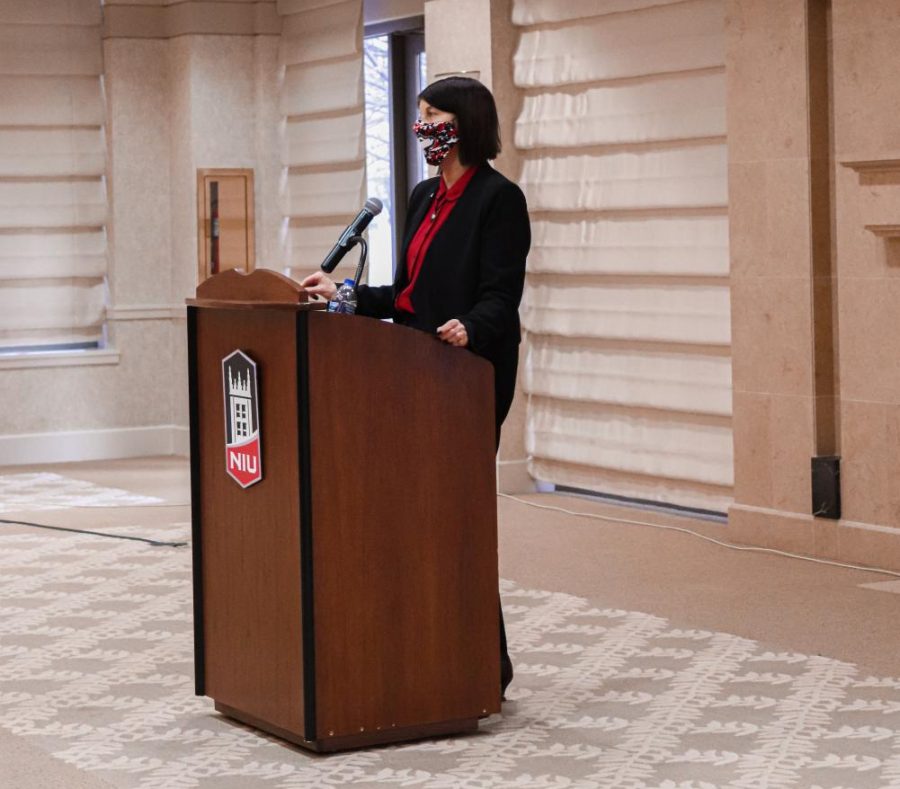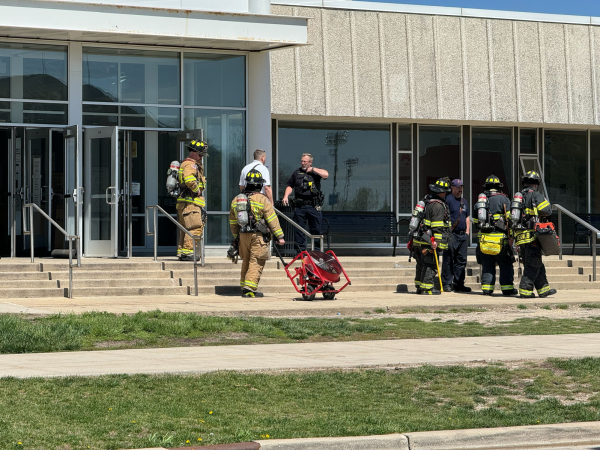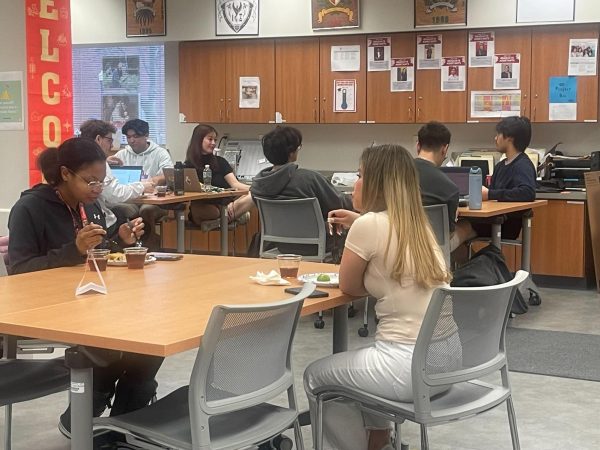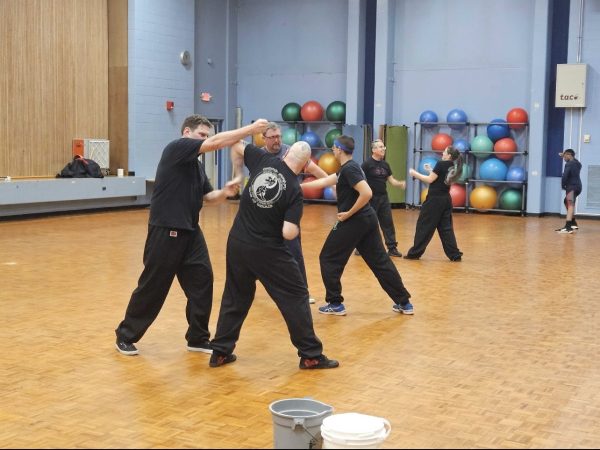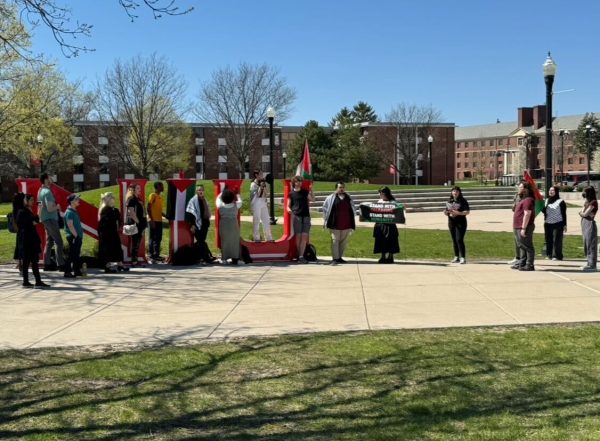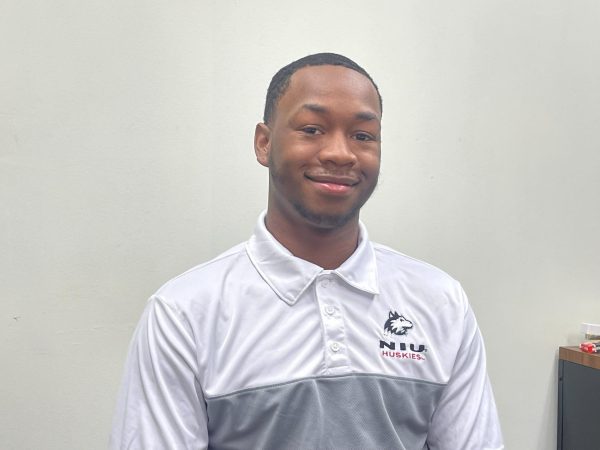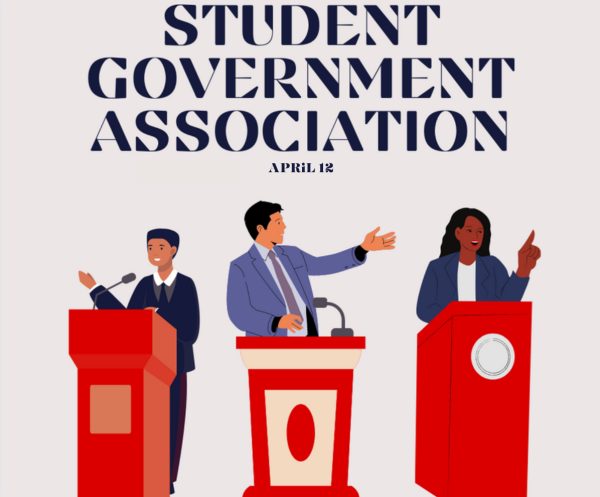NIU plans to close equity gaps for low-income students
NIU President Lisa Freeman spoke on the universities strategies to adress “equity gaps,” educational strategies and obstacles caused by COVID-19 during her State of the University speech in November.
November 17, 2021
DeKALB — NIU President Lisa Freeman remarked on previous accomplishments and outlined NIU’s plans for higher education coming out of the COVID-19 pandemic in her State of the University speech on Tuesday.
Freeman reflected on several accomplishments made by the university over the past year, such as financial support and direct aid for students from the emergency fund, an increase in first-year student enrollment and NIU’s position as one of the first universities to remove the use of standardized test scores for admissions and merit scholarships.
“Since April 2020, more than 6,000 students have received some form of student emergency fund financial support, totaling $5.7 million in direct aid to help address housing, meals, transportation and technology needs,” Freeman said.
Freeman also spoke on the university’s intent to revise educational strategies, mentioning the challenges students and employees of the university have undergone as a result of the COVID-19 pandemic, as well as national issues regarding systemic racism, xenophobia and intolerance.
“Diversity is a dimension of our excellence, and equity is a driving force, and necessary condition for achieving excellence in all aspects of our mission,” she said.
Part of the plan for the university’s focus on addressing “equity gaps” comes in the form of a partnership with Braven, a non-profit organization offering students of low-income background opportunities they might not otherwise receive.
“Braven and university partners work together to ensure that first-generation college students, students from low-income backgrounds and students of color gain the skills, confidence, experiences and networks necessary to transition from college to strong first jobs and thrive in 21st-century workplaces,” Freeman said.
Freeman described several obstacles posed by the COVID-19 pandemic and its effects on the realm of higher education, but mentioned the resilience of the university in the face of uncertainty.
“You’ve seen COVID really accelerate stressors that were already there in the background: financial stressors, enrollment stressors, workforce stressors,” Freeman said. ”But at the same time, and I hear this from presidents of all different types of institutions, Covid also brought out something in us that we weren’t sure was there: an ability to be nimble, to pivot, to be resilient.”
Another topic addressed on Tuesday was the “Great Resignation,” an informal name for the trend of Americans leaving the workforce resulting in labor shortages. Freeman expressed her intent on increasing employee satisfaction and having salaries proportionate with the demands of university employees.
“That’s one of the main reasons why people are leaving, it’s that they don’t feel recognized and they don’t feel listened to, so we’re going to do more of that,” said Bill Hodson, chief human resource officer, .
Freeman responded to a question from the audience regarding her motivations.
“The short answer is our students,” Freeman said. “When I look at our students, when I hear about their hopes and dreams for themselves, for their communities, for our world I want to just help them in every way I can every single day, and that’s what makes me smile and get up and come to work in the morning.”
A video of the 2021’s State of the University speech is available via Northern Illinois University’s Youtube page.



